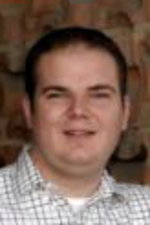Marjorie Cortez, a Deseret News editorial writer in Salt Lake City whose kitchen is armed with bleach, antibacterial wipes and sprays, writes,
“Some 12 years ago, my husband got sick. I had never seen a person so sick outside of a hospital. His fevers were so severe that when they broke, the bed sheets were sopping wet. He couldn’t keep anything in his stomach. We battled to keep him hydrated.
 “He wasn’t alone in his misery. He was among a small group of people who contracted salmonella when a restaurant cook failed to properly clean a cutting board where raw chicken had been cut. …
“He wasn’t alone in his misery. He was among a small group of people who contracted salmonella when a restaurant cook failed to properly clean a cutting board where raw chicken had been cut. …
“So it surprises me when there’s such outcry when the Food and Drug Administration approves a practice to help make our food safer. This past week, the FDA decided to allow spinach and lettuce sellers to treat their products with radiation to safeguard against E. coli and other bugs that can make us sick.
“As soon as FDA officials made the announcement, critics were all over the airwaves claiming radiation makes food less nutritious and potentially toxic.
Toxic? Give salmonella a whirl if you want to talk toxic. …
“Food irradiation isn’t a magic bullet. But it’s one more barrier to micro-organisms that can sicken and kill. I should think that most people would want that extra tool to help keep their families safe, particularly when we know that a fairly high percentage of food-borne illnesses result from poor food-handling practices in the home.
“For me, it’s one more safeguard, one I’m more than willing to welcome into my home.”
